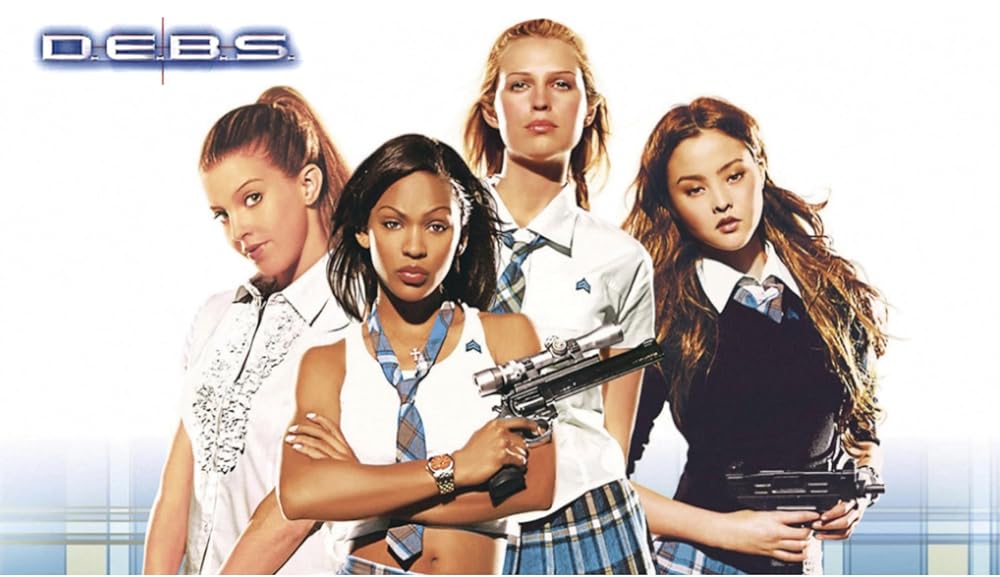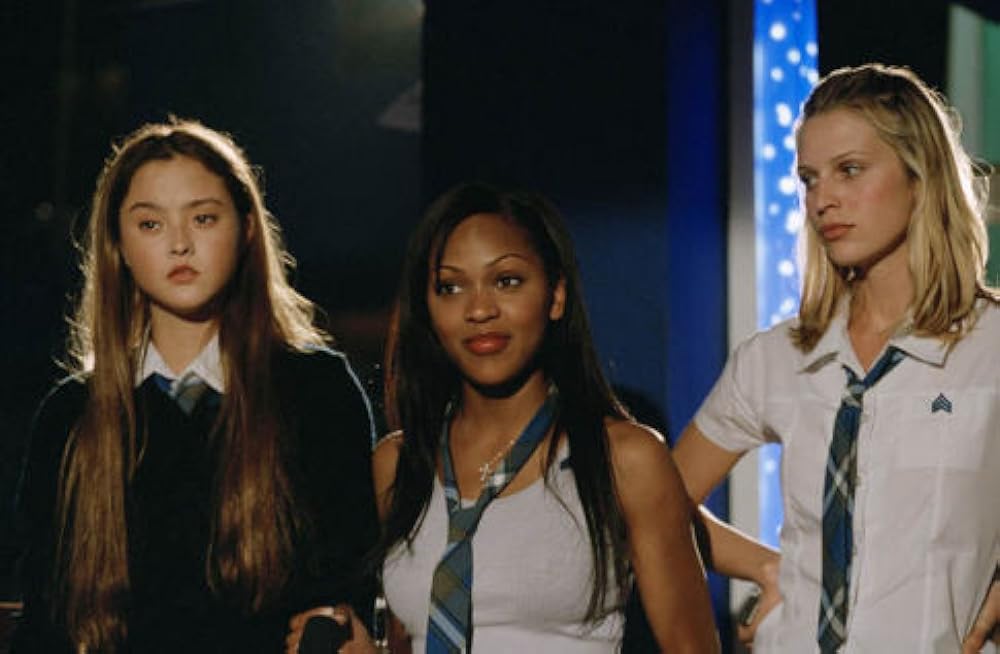The Unapologetically Camp, Sapphic Spy Film: D.E.B.S.

Through the years, Hollywood has produced an infinite amount of espionage films. These films have essentially all been the same: created by cisgender white directors, starring cisgender white male characters, and catering to a cisgender white male audience. The spy film genre was a humdrum until Angela Robinson stepped onto the scene in 2003 with a 10-minute action-comedy short film “D.E.B.S.,” starring an all-female cast of spies. A year later, its feature-length film “D.E.B.S.” was released. While not independently produced, “D.E.B.S.” does not follow Hollywood’s overspending trend with its budget and doesn’t take itself too seriously unlike the “James Bond” franchise.
“D.E.B.S.” features schoolgirl spies-in-training, fighting crime in stylish plaid skirts for a covert espionage institution. Unsuspectingly, one of its top students forms a relationship with a super-villainess. The film really packs a punch, turning the mainstream spy genre on its head with its all-female lead cast and queer representation and overall campiness.
As “D.E.B.S.” was directed by African-American queer director, Angela Robinson, it was already ahead of its time but to decide on producing a movie in the early 2000s with a mostly female-led cast was revolutionary and legendary. In the early 2000s, white actors also dominated the Hollywood film industry and it lacked much diversity. In “D.E.B.S.,” two BIPOC women, Devon Aoki and Meagan Good, were among four of the lead actors.

The film industry has produced an overwhelming number of sapphic films with tragic endings. However, the late 1990s and early 2000s saw movies with a positive portrayal of sapphics. Movies like “But I’m Not a Cheerleader” (1999), “Saving Face” (2004), and “Imagine Me and You” (2005) offered more upbeat, heartening depictions of women loving women. Robinson’s “D.E.B.S.” was on board with this by giving supervillainous Lucy Diamond (Jordana Brewster) and the D.E.B.S. member Amy (Sara Foster) the great enemies-to-lovers, happy ending they deserved.
In the film, campiness was very present. Long before ‘camp’ hit mainstream, the term belonged to the LGBTQ+ community. Camp served as the community’s cudgel for liberation and self-expression through tongue-in-cheek storylines and over-the-top aestheticism in indie films. By the late nineties, pop-culture caught wind of it, and camp found its way outside of independent film, displaying in mainstream television, fashion, music—its meaning eventually evolving into ‘something that is so bad that it’s good.’ “D.E.B.S.” embodies the very principles of queer indie cinema, being unapologetically camp, with its satirical portrayal of spies, bad CGI, and laughable dialogue and scenes. Despite being viewed as not up to scratch by Hollywood standards, the film was progressive for the time, decent sapphic representation, and an enjoyable film all around. If you’re looking for an unapologetically sapphic, camp 2000s film, then “D.E.B.S.” (2004) is right up your alley!
